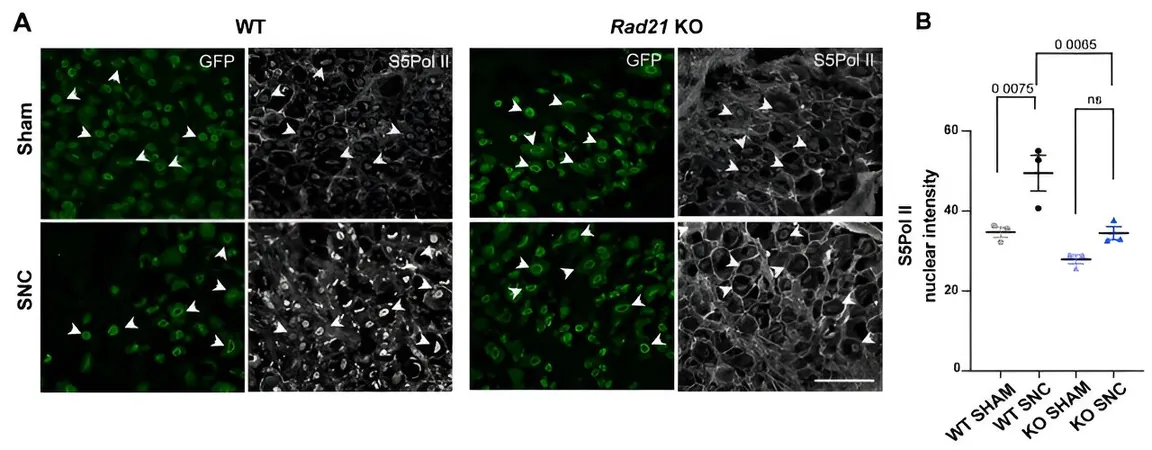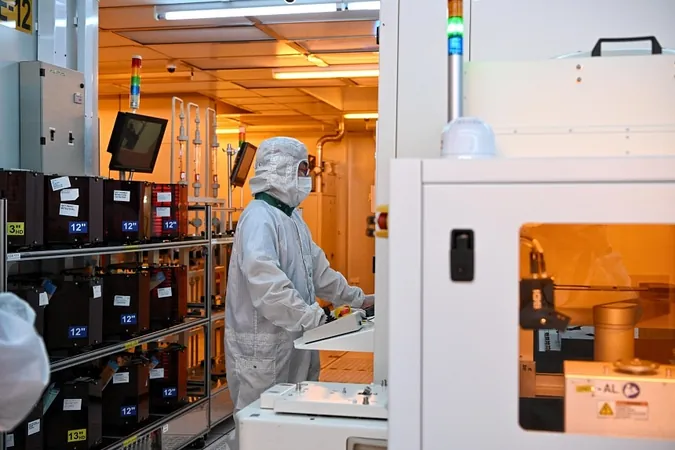
Breakthrough in Cardiac Surgery: New Lung Protection Technique Shows Promising Results!
2024-09-27
Groundbreaking Clinical Trial
A groundbreaking clinical trial led by the University of Bristol has unveiled a promising new intervention to protect lung function during cardiac surgery, specifically in patients undergoing heart valve operations. The study, published in the prestigious Journal of the American Heart Association, offers hope for thousands of patients worldwide if this method is adopted by healthcare systems like the NHS.
Traditional Challenges in Heart Surgery
Traditionally, patients undergoing heart surgery on a heart-lung machine have had their lungs left collapsed, which is known to cause lung damage and impair function post-operation. Such complications can lead to longer recovery times and increase the risk of mortality, particularly in high-risk patients. However, this study introduces a novel approach known as low frequency ventilation (LFV), aimed at keeping the lungs regularly expanded during surgery.
Study Methodology and Participants
The randomized controlled trial involved 63 adult patients with severe mitral or aortic valve disease, with an average age of 66.8 years. The participants were divided into two groups: one group received the LFV intervention while the other received the standard care of collapsed lungs. The follow-up period lasted between six to eight weeks post-discharge, during which researchers assessed lung function and exercise capacity.
Promising Results Observed
The results were striking. Not only was LFV found to be feasible and safe, but patients who received this intervention also exhibited preserved lung function and demonstrated significantly improved performance in a 6-minute walking test prior to discharge. In fact, those in the LFV group walked longer distances compared to their counterparts in the usual care group.
Future Research Directions
Furthermore, LFV led to notable changes in a specific biomarker related to lung function, known as sRAGE, indicating potential pathways for future research into targeted lung protection therapies.
Expert Commentary
Professor Raimondo Ascione, a leading figure in the study and Director of Translational Health Sciences at Bristol Medical School, emphasized the importance of these findings. “Our randomized clinical phase II trial has shown that low frequency ventilation during heart-lung machine use is not only viable and safe but also effective in improving postoperative outcomes,” he stated.
Next Steps in Research
Looking ahead, the research team plans to initiate a larger national phase III trial involving a more diverse and extensive patient group suffering from severe heart valve disease. Should these future trials corroborate their original findings, LFV could soon transform into a standard practice within the NHS, leading to significant cost savings and improved patient quality of life.
Conclusion and Future Outlook
As the medical community anticipates the results of larger studies, this innovative lung protection technique might just become a game-changer in cardiac surgery, ensuring more patients can enjoy better recovery and outcomes. Is this the future of heart surgery? Only time will tell!




 Brasil (PT)
Brasil (PT)
 Canada (EN)
Canada (EN)
 Chile (ES)
Chile (ES)
 España (ES)
España (ES)
 France (FR)
France (FR)
 Hong Kong (EN)
Hong Kong (EN)
 Italia (IT)
Italia (IT)
 日本 (JA)
日本 (JA)
 Magyarország (HU)
Magyarország (HU)
 Norge (NO)
Norge (NO)
 Polska (PL)
Polska (PL)
 Schweiz (DE)
Schweiz (DE)
 Singapore (EN)
Singapore (EN)
 Sverige (SV)
Sverige (SV)
 Suomi (FI)
Suomi (FI)
 Türkiye (TR)
Türkiye (TR)